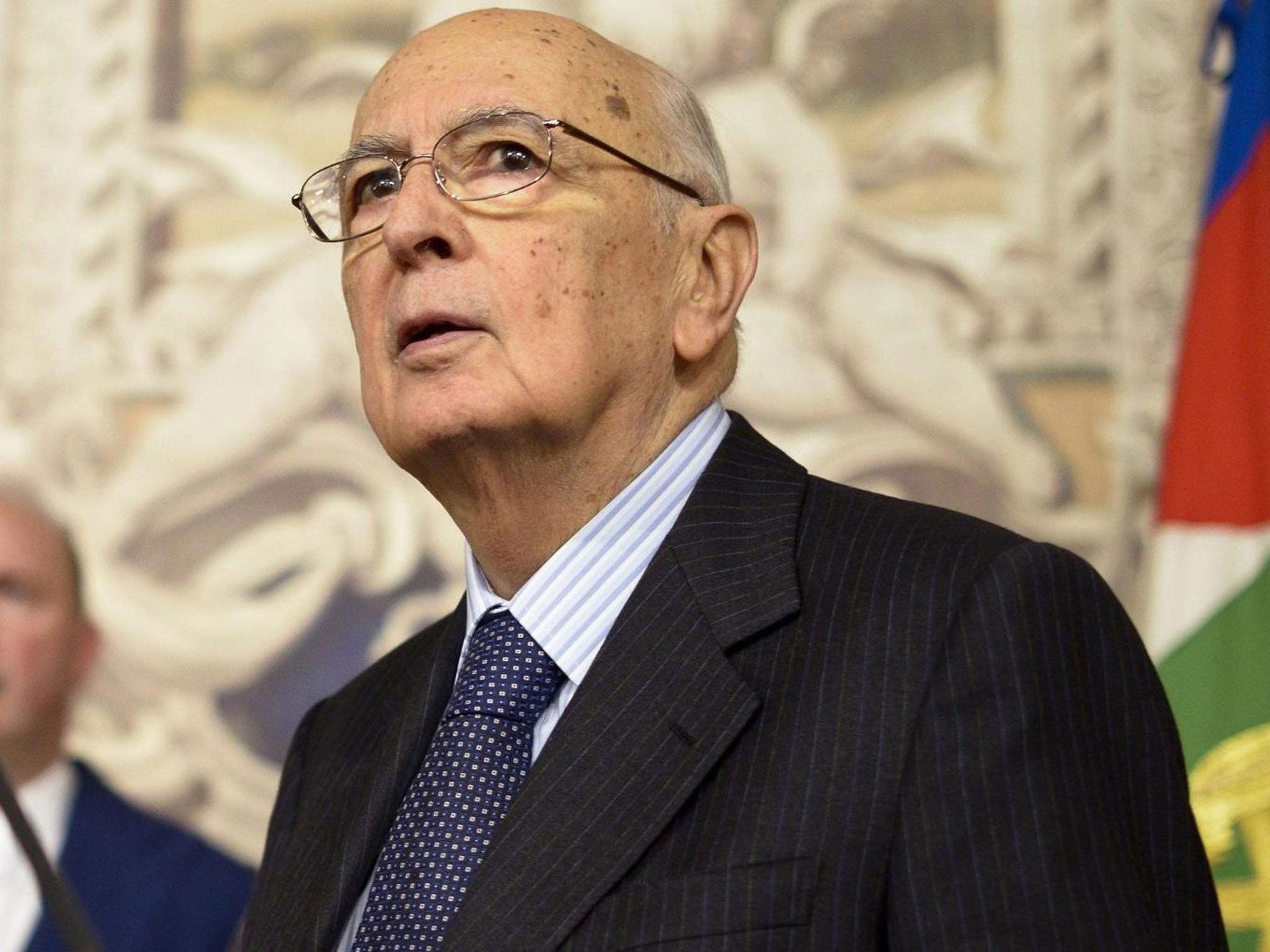Your support helps us to tell the story
This election is still a dead heat, according to most polls. In a fight with such wafer-thin margins, we need reporters on the ground talking to the people Trump and Harris are courting. Your support allows us to keep sending journalists to the story.
The Independent is trusted by 27 million Americans from across the entire political spectrum every month. Unlike many other quality news outlets, we choose not to lock you out of our reporting and analysis with paywalls. But quality journalism must still be paid for.
Help us keep bring these critical stories to light. Your support makes all the difference.
Italy's Parliament yesterday re-elected Giorgio Napolitano to an unprecedented second term as president, after party leaders persuaded the 87-year-old to serve again in hopes of easing the hostility that has thwarted formation of a new government. Napolitano, who will, if he serves out the term, be nearly 95 when it ends, easily surpassed the simple majority required to be elected Saturday afternoon. He gathered 738 votes, far more than the 504 needed for victory for another seven-year mandate.
Parliament had a much harder time. It took it three days of balloting to choose a president, reflecting the legislature's deep polarisation following inconclusive nationwide elections in February. After the weeks of stalemate, Napolitano can formally begin one of the head of state's most important tasks once he takes a new oath of office. He must figure out who has the best prospects of putting together a new government, with enough support to successfully work with Parliament and survive a mandatory vote of confidence.
That won't be easy. Italy's main political parties - essentially three distinct ideological blocs in Parliament and their often shifting allies - are heavily polarized, and antagonism only grew sharper during the gridlock. Napolitano, a former Communist, will have to quickly start sounding out parties about a potential premier. The next government faces pressure to bring urgently needed economic and electoral reforms to the recession-mired nation.
Italy has had a caretaker government for months, led by economist Mario Monti, a Napolitano appointee whose harsh austerity measures of higher taxes, pension reform and slashed spending helped keep Italy from succumbing to the debt crisis. Napolitano, citing his advanced age, had repeatedly refused to be a candidate for another term that would see him turn nearly 95 when it runs out. But he yielded to the appeals out of a sense of responsibility toward the nation, he said.
While Napolitano's election received a standing ovation from lawmakers and plaudits from abroad, several thousand people protested noisily outside Parliament, disappointed that Italy's old political guard hadn't changed. Lawmakers from Parliament's third-largest bloc, the anti-establishment 5 Star Movement led by comic-turned-political agitator Beppe Grillo, galvanized supporters for the protest. Grillo had backed a left-leaning constitutional law expert for president.
Grillo and his fast-growing movement are bitterly opposed to the incumbent, who in late 2011 appointed Monti and a Cabinet of technocrats to replace an elected premier as the eurozone debt crisis threatened to engulf Italy. But among those beaming and applauding Napolitano's re-election was Berlusconi. The billionaire businessman fell short in a comeback attempt in February elections for a fourth term as premier.
Subscribe to Independent Premium to bookmark this article
Want to bookmark your favourite articles and stories to read or reference later? Start your Independent Premium subscription today.

Join our commenting forum
Join thought-provoking conversations, follow other Independent readers and see their replies
Comments